Column: Turning budget compost, instead of planting seeds, hoping they’ll grow
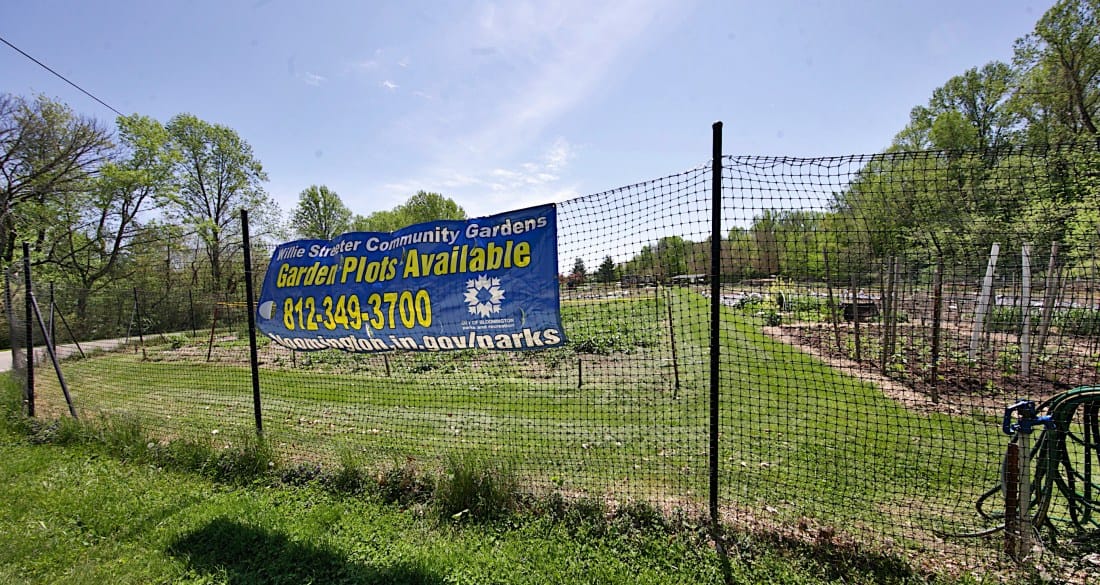

I would like to bore you to death with some thoughts on Bloomington’s budget planning for 2021.
Before we get to the boring part, I’ll report on a field trip I took on Monday to the south part of town.
The banner hanging on the deer fence of the Willie Streeter Community Garden on Highland Drive, north of the Winslow Sports Complex, says that garden plots are still open.
When I called the number on the banner Tuesday morning (812.349.3700), I got confirmation: There are two plots still available this year.
Julie Ramey, the parks and recreation community relations manager, told me this year’s interest in community gardening plots is stronger than last year’s, when not all plots were rented.
The two at Willie Streeter are the only plots left out of the 176 plots at that site. The 50 plots at Butler Park Community Gardens and the 39 new raised beds at Switchyard Park are already spoken for, Ramey said.
It’s still worth giving the number a call, even if all of the plots are rented out, because the department maintains a wait list. That way, if a gardener isn’t able to see things through to the end of the growing season, someone else can take over, Ramey said.
A little farther south of the community gardens is the Community Orchard, a nonprofit that operates in partnership with the Bloomington parks and recreation. The orchard is celebrating its 10th anniversary this year.
I received the orchard’s email message a couple of days ago encouraging me to visit and help out if I could. I’m on their list because I lent a hand planting some trees last year in the new nut grove. The grove is down the hill from the fenced-in part of the orchard.
What prompted me to head out yesterday to the orchard and the gardens to take some photos was not the email from the orchard or a press release from the city of Bloomington.
Last Wednesday, at the city’s budget advance meeting, I listened to councilmember Dave Rollo describe one of his budget priorities for 2021: Expansion of the local food economy.
So I wanted to grab some fresh photos of the gardens and the orchard—to use as decoration for any upcoming pieces I might need to write about local food economy expansion.
To be clear, I think what Rollo described—a two-year goal of sourcing 5 percent of Bloomington’s food locally—is going to need way more than just community gardens and orchards. It’s going to involve way more than local farmers markets continuing to operate at their existing capacity.
From what I can tell of Bloomington’s budgeting process, the city council’s role can be compared to planting seeds in May, then waiting patiently until late August, to see if any of them sprouted.
Late August is when the council holds its hearings on the draft budget. At the end of September is when the administration presents the final version to the council. In early October, the budget gets adopted.
Some of those budget seeds just seem to die in the ground. The parking cashout program for city employees is one good example. It was cited as a priority in May 2019, but did not make it into the 2020 budget. The parking cashout program seed was re-planted at this year’s budget advance.
Instead of seed-planting, it might be worth considering compost-turning as a more effective approach. If the budget priorities that councilmembers talk about in May are mixed through the regular community and city council conversation—from budget advance through the end of August—those ideas might have a better shot at bearing fruit in the next year’s budget.
Here’s one reason to be optimistic about the idea including in the 2021 budget an expansion of the local food economy. Because of the COVID-19 pandemic, the new People’s Market and the city’s own farmers market have both adopted a way for customers to order online and pickup their orders on Saturdays.
When pandemic restrictions are completely lifted, I hope that the online ordering and quick pickup systems for both of those markets are retained. Not as a substitute, but as a way to augment the in-person Saturday market.
A next step could be to offer online ordering with pickup on some days that are not Saturday.
When I asked some folks at the city of Bloomington about the future of online ordering at the city market, director of economic and sustainable development Alex Crowley didn’t comment on the farmers market specifically—that’s a parks and recreation program.
But here’s what Crowley had to say generally:
What I can tell you is that Economic & Sustainable Development has been working for over a year as part of a USDA “value chain coordinator” grant to facilitate connecting local growers and purchasers (individual or institutional) of locally grown/produced food. This ties nicely into that effort. So it’s not inconceivable that an online system would continue, albeit perhaps not so formally associated with the farmers market.
What can the public and the city council do between now and August to make sure the program Crowley described is accelerated, expanded and complemented with a suite of other measures in the 2021 budget?
I’m not certain what the answer is. But I think the democratic process is helped if we tell the city council and the mayor what’s on our mind.
Photos: May 2020 Community Gardens, Community Orchard
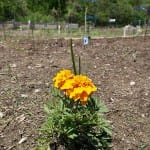
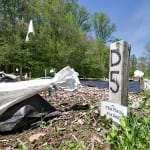
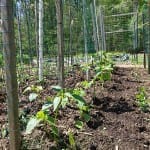
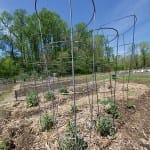
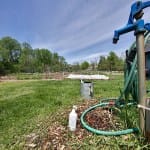
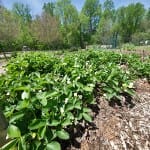
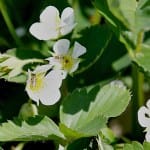

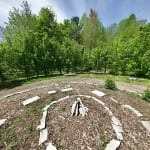
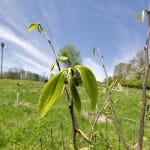
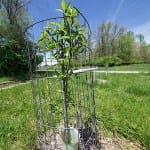
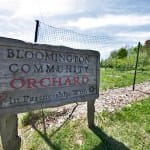
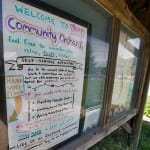
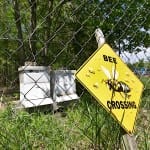

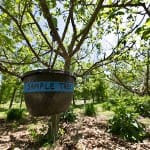
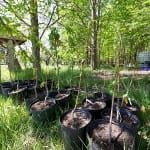
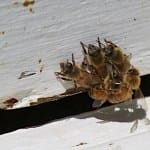




Comments ()